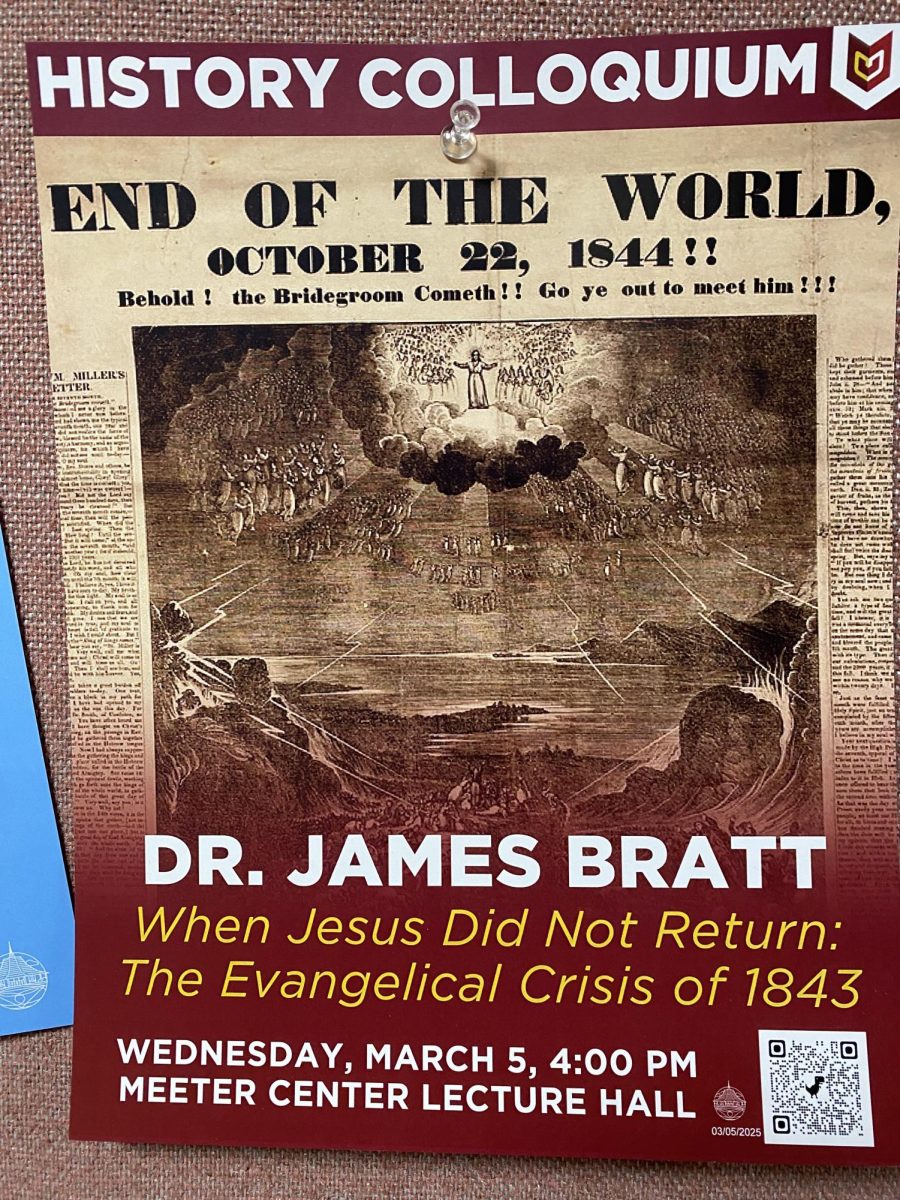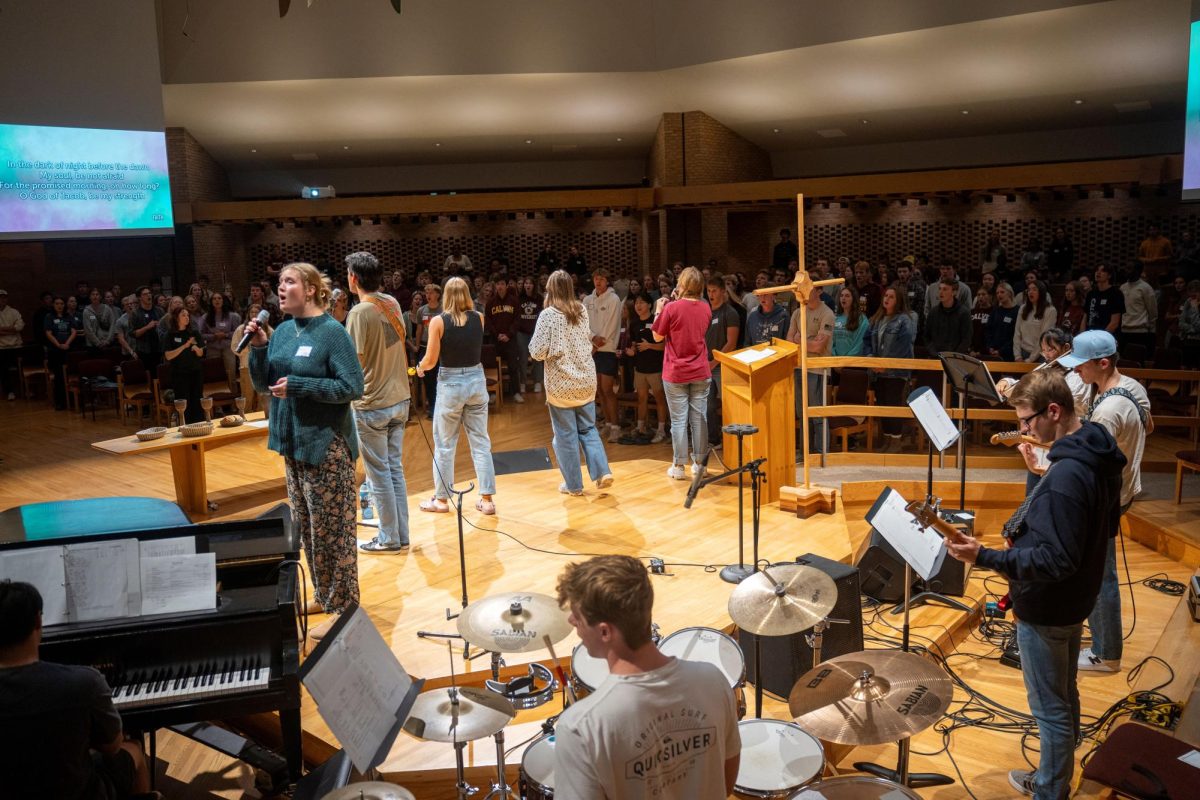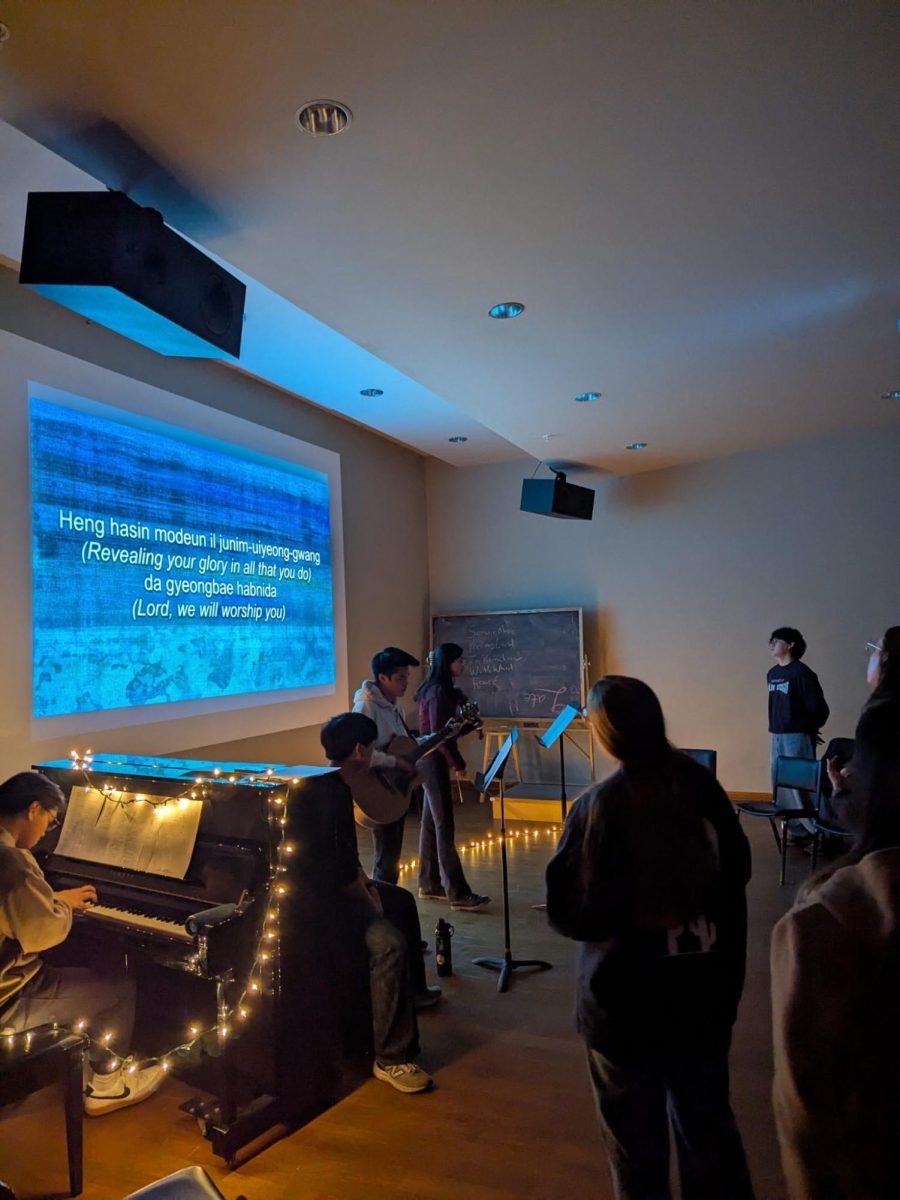The annual synod of the CRC, Calvin’s parent denomination, took place on campus from June 14-20. Following synod, Chimes asked Pastor Mary Hulst, who has served as Calvin’s university pastor since 2009, some questions about what Synod 2024 means for Calvin University.
This interview has been edited for length and clarity.
Chimes: You sometimes do a new faculty orientation seminar for people who come to Calvin and are unfamiliar with the school’s relationship to the CRC. If you would reframe those talking points for unfamiliar students, how would you explain it?
Pastor Mary: I use the analogy of how a bill becomes a law in the Christian Reformed Church, because that allows me to walk through the whole system. So if you, as a congregant, have an idea for something, and you think your whole church should do it, you go to your council, which is elders and deacons.
And if your church is doing something that you think the next group up should do, which is the regional body called the classis, then you send an overture and you say, “Hey, we suggest that everybody in classis and maybe everybody in the denomination do this.”
And then the classis says,“That’s a great idea. We’re recommending it to synod.” It goes from you to your elders and deacons to the classes, to the synod, and each of those bodies is made up of delegates from the previous body.
So the congregation delegates people and ordains them to the offices of elder and deacon. The groups of elders and deacons delegate people to classes, and there are usually a pastor, and elder, and a deacon who attend a classis meeting, and from the classes, there are four delegates: usually a pastor, an elder, a deacon and one other – a pastor, elder or deacon – who go to synod, and so synod is made up of delegates from all of the different classes or regional bodies of the Christian Reformed Church in North America.
We don’t call [delegates to Synod] representatives because they’re not supposed to go there with their minds made up and their votes already cast. They’re invited to go and deliberate together in consultation with the Holy Spirit, and so the delegates all come together.
So your church, your local congregation, your council may meet once a month. Classes meet two or three times a year, depending on the classis, and Synod meets once a year in June and it used to be two weeks. Now it’s nine days, and it meets usually on the campus of one of its affiliated colleges.
Chimes: Can you tell me a little more about what affiliation with the CRC means for Calvin?
Pastor Mary: So, the difference between an affiliated college – such as Dordt or Redeemer or Trinity – and Calvin is that while they’re just affiliated with the church, we are actually an agency of the church. That is, we – like Calvin Seminary, like… Resonate – we are part and parcel of the denomination, and so our articles of incorporation bind us to the decisions of synod. And so, what synod decides over the years has an impact on Calvin and what Calvin does over the years can be reviewed by synod.
And so it’s a very tight relationship. Dordt doesn’t have that. Trinity doesn’t have that. If you’re affiliated with a denomination, that may mean the denomination started you but kind of left you to your own devices. But if you are, as we are, an agency of the denomination, then the accountability structure is a lot tighter.
Chimes: Part of that structure and relationship that got mentioned pretty often at Synod is this document called the confessional commitment and academic freedom document. What’s that document for, and what’s some of the history behind it?
Pastor Mary: It’s available online. So anyone can read it, it gives us our playground on which to do academic pursuits. So confessional commitment says yes, I’m not going to, for example, do research that undermines the doctrine of the Trinity and teach that to my students.
I’m going to align with the confessions in what I’m curious about, but academic freedom also says if in my research I come across really good data, really good research that says – for example, like our Belgic Confession says Paul was the author of Hebrews.
Well, I, in my research, realize, Paul wasn’t the author of Hebrews because the Greek that’s used is very different. For example, we may say, “Oh, that’s your academic freedom. That’s your discipline.”
Several years ago, it was around evolution and creation, as our research scientists were learning more and more and more about the origins of the world, they said.
They put it very succinctly and beautifully, and our biology department still does this: This sense of, “And yes, we know God is the creator of the world. We celebrate that and we get delighted when we try to figure out, ‘how did he do that?’” We’re not limited by historic understandings of 6000 years… And we try to say, “Let’s listen well to our researchers and scientists who also love Jesus and love the church and want the best.”
In light of those things, we’re gonna pursue research, if it’s in our area of specialty, that may every now and then kind of bump up against those confessional commitments, and we’re gonna do that in conversation with our department chair, our dean, the provost so that there are no surprises so that everybody has an understanding of what we’re doing and if asked by synod for example we could go and say actually this is what we’re learning and throughout the year.
In 2014, particularly, the Confessional Commitment and Academic Freedom document was applauded by synod. They said this is a really great way to think about doing excellent research, as Christian academics and particularly Reformed Christian academics. And so it’s a document that has animated us specifically for the last 10 years. But the ethos of it has been at Calvin since the beginning.
Chimes: A lot of the decisions with regard to Calvin at Synod 2024 were focused towards the faculty and not necessarily students or staff. What do this year’s decisions mean for those who are in pastoral or counseling roles at Calvin? What will pastoral care look like for LGBTQ students?
Pastor Mary: It will look as it always has, which is a deep love and care for our LGBT students, and that has been the commitment of the church all along. From 1973 to 2002 to 2012 to 2022, again and again, the denomination has said to care well for the sexual minorities in your communities, and Calvin is deeply committed to that. We know that not everyone who comes to Calvin agrees with the denominational position. And we are committed to care well for all students. That’s our commitment. And so the pastoral care and the counseling remains consistent as it always has been, to show deep care for these students, to support them, to walk with them through their college years as they discern what it means for them to follow Jesus.
Chimes: Is there anything else you’d like students to know?
Pastor Mary: I think our Board of Trustees, our administration, deans. department chairs…we all need prayers right now for a lot of wisdom as we seek to discern a response to what synod has asked of us. And so I want to ask all students to, you know, if you wanna set your phone with a reminder, pray for Calvin every day, that would be a real gift to us. As you know, we have an interim president right now and our Board of Trustees has just dealt with a great deal of things this spring. And so we need great wisdom, stamina and clarity about the way forward.







Kathy • Jul 5, 2024 at 6:26 pm
If a student discerns that God is leading him or her into a romantic relationship with another student of the same sex, that student’s support will be to counsel him or her out of the relationship. The CRC has said that such loving, same sex relationships are sinful. What alternatives are there for this student? Repent and promise to live a celibate life until death or go through conversion therapy or date someone of the opposite sex and live a lie. This kind of “support” has led same sex young adults to attempt suicide in some cases.
Josh • Jul 11, 2024 at 11:55 pm
This is based on a false pretext. As a church, the CRC does not believe that God leads people into sinful relationships. From a human perspective, it is a violation of the 7th commandment. From the divine perspective, it would be a violation of the divine attribute of goodness for God to act contrary in a way that he has ordained. The alternative for the student is the same alternative for a heterosexual student as well. The church isn’t calling them to a different standard. It calls them to the same standard, the one prescribed by scripture. Young people, like many of the millennial generation even today, need to see their identity in Christ. This is through careful study of His Word. Too often we see what the world does and acquiesce to it because we do not want to offend. But we are called to not love the things of this world, and not follow the spirit of the age. Seek first the kingdom of God. That is the message Christ spoke to his people, we should be speaking the same. We are so much more than our sexuality.
Ryan • Oct 1, 2024 at 10:50 am
It is not based on a false pretext, it’s based on a different belief. The belief that God can absolutely lead anyone into a loving relationship with anyone. Synod was hijacked by a loud group and that group forced an issue that should not have been forced.
You’re right, we ARE so much more than our sexuality — a statement that perfectly encapsulates why synod’s decision to reduce an individual’s salvation to their sexual preferences is a travesty.